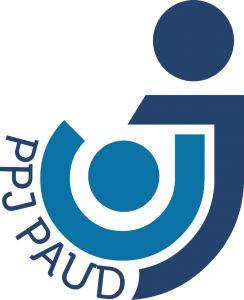PENGARUH VIDEO ANIMASI PEMBELAJARAN JARAK JAUH TERHADAP KEMAMPUAN BERPIKIR LOGIS ANAK USIA DINI
DOI:
https://doi.org/10.30736/jce.v5i1.505Keywords:
Animated Videos, The Ability to Think Logically, Early childhood,Abstract
Abstract This study aims to determine the effect of distance learning animation videos on the logical thinking skills of group A children in TK Dharna Wanita Padas - Ngawi. The research used is quantitative type. The data collection method used in this research is the research method used in this research is pre-experimental design and single group pre-test and post-test design. This is because there is no parallel class at school, so that 21 children were selected as research subjects who came from TK Dharna Wanita Padas, Ngawi. The data analysis technique used is to use the t-test to perform parameter statistics on small correlated samples. The data collection method uses participant observation. Based on the results of data analysis with a significance level of 5%, it was obtained tcount > ttable (4.3 > 1.7). This can be interpreted that the alternative hypothesis (Ha) can be accepted, so the distance learning animation video (has a significant effect) or it can be said to be an effective way of the logical thinking ability of group A children TK Dharna Wanita Padas, Ngawi.References
Amini, M. (2014). Hakikat Anak Usia Dini. Perkembangan Dan Konsep Dasar Pengembangan Anak Usia Dini, 65. repository.ut.ac.id/4697/1/PAUD4107-M1.pdf
Andini. (2019). Pengaruh media animasi terhadap keterampilan berpikir kritis peserta didik pada materi pengukuran di man 1 nagan raya.
Azizah dkk. (2020). Indonesian Journal of Community Engagement (IJCE) LPPM-STKIP Modern Ngawi. Indonesian Journal of Community Engagement (IJCE), 2(1), 14–19.
Bdr, D. I. R. (2020). Metode Pembelajaran Eksperimen Berbasis Belajar. 6(2), 98–104.
Cannady, M. A., Vincent-Ruz, P., Chung, J. M., & Schunn, C. D. (2019). Scientific sensemaking supports science content learning across disciplines and instructional contexts. Contemporary Educational Psychology, 59(September), 101802. https://doi.org/10.1016/j.cedpsych.2019.101802
Darwati, Wijayanti, A., & Azizah, E. N. (2019). Peningkatan Kemampuan Motorik Anak Usia 3-4 Tahun Melalui Kegiatan Fun Cooking. Jurnal Ilmiah Pendidikan Citra Bakti, 6(2). https://doi.org/10.5281/zenodo.3551669
Ibda, F. (2015). Perkembangan Kognitif: Teori Jean Piaget. Intelektualita, 3(1), 242904.
Indrawan, I., & Wijoyo, H. (2020). Pendidikan Anak Pra Sekolah (Issue June).
Kementerian Pendidikan Nasional. (2014). Permendikbud No 146 Tahun 2014. ببب, 8(33), 37. http://paud.kemdikbud.go.id/wp-content/uploads/2016/04/Permendikbud-146-Tahun-2014.pdf
MENTERI PENDIDIKAN DAN KEBUDAYAAN REPUBLIK INDONESIA. (2014). Standar Nasional Pendidikan Anak Usia Dini. Peraturan Menteri Pendidikan Dan Kebudayaan Republik Indonesia, 13.
Munir. (2020). Konsep & Aplikasi Dalam Pendidikan. In Alfabeta, CV. (Vol. 58, Issue 12).
NAEYC. (2005). NAEYC Early Childhood Program Standards. 1–3.
Novie Azizah, E., Koesmadi, D. P., & Widyaningsih, I. (2021). Pengaruh Metode Eksperimen Melalui Media Realia Terhadap Kemampuan Sains Anak Usia Dini. Jurnal Ilmiah Pendidikan Citra Bakti, 8(1), 82–91. https://doi.org/10.38048/jipcb.v8i1.159
Pender, R. R. (2011). Constructive Play. Encyclopedia of Child Behavior and Development, 409–410. https://doi.org/10.1007/978-0-387-79061-9_677
RAHMAYANTI, L., & ISTIANAH, F. (2018). Pengaruh Penggunaan Media Video Animasi Terhadap Hasil Belajar Siswa Kelas V Sdn Se-Gugus Sukodono Sidoarjo. Jurnal Penelitian Pendidikan Guru Sekolah Dasar, 6(4), 254968.
Suyanto, S. (2014). Pengenalan Sains Untuk Anak Tk Dengan Pendekatan “Open Inquiry.†Http://Staff.Uny.Ac.Id/Sites/Default/Files/PENGENALAN SAINS UNTUK ANAK TK(1).Pdf, 1–14. http://staff.uny.ac.id/sites/default/files/PENGENALAN SAINS UNTUK ANAK TK(1).pdf
Syaikhu, A. (2020). Strategi Pembelajaran Berbasis Multiple Intelligences. Auladuna : Jurnal Prodi Pendidikan Guru Madrasah Ibtidaiyah, 2(2), 59–75. https://doi.org/10.36835/au.v2i2.416
Wijayanti, A. (2019). Pengembangan Permainan Maze Tiga Dimensi Pada Kemampuan Motorik Kasar Kelompok B Di Tk Pgri I Jogorogo Ngawi. Jurnal Pendidikan Modern, 4(3), 18–27. https://doi.org/10.37471/jpm.v4i3.10
Yilmaztek, R. K., & Tantek, F. (2011). Early Childhood Teachers’ Views About Science. Western Anatolia Journal of Educational Science, 161–168.
Downloads
Published
How to Cite
Issue
Section
License
Please find the rights and licenses in JCE (Journal of Childhood Education). By submitting the article/manuscript of the article, the author(s) agree with this policy. No specific document sign-off is required.
1. License
Use of articles will be governed by the Creative Commons Attribution - ShareAlike license as currently displayed on Creative Commons Attribution-ShareAlike 4.0 International License.
2. Author(s)' Warranties
The author warrants that the article is original, written by stated author(s), has not been published before, contains no unlawful statements, does not infringe the rights of others, is subject to copyright that is vested exclusively in the author and free of any third party rights, and that any necessary written permissions to quote from other sources have been obtained by the author(s).
3. User Rights
JCE (Journal of Childhood Education)'s spirit is to disseminate articles published are as free as possible but there is a little payment for publication. Under the Creative Commons license, JCE (Journal of Childhood Education) permits users to copy, distribute, display, and perform the work for commercial purposes. Users will also need to attribute authors and JCE (Journal of Childhood Education) on distributing works in the journal and other media of publications.
4. Co-Authorship
If the article was jointly prepared by more than one author, any authors submitting the manuscript warrants that he/she has been authorized by all co-authors to be agreed on this copyright and license notice (agreement) on their behalf, and agrees to inform his/her co-authors of the terms of this policy. JCE (Journal of Childhood Education) will not be held liable for anything that may arise due to the author(s) internal dispute. JCE (Journal of Childhood Education) will only communicate with the corresponding author.
5. Miscellaneous
JCE (Journal of Childhood Education) will publish the article (or have it published) in the journal if the article’s editorial process is successfully completed. JCE (Journal of Childhood Education)'s editors may modify the article to a style of punctuation, spelling, capitalization, referencing and usage that deems appropriate. The author acknowledges that the article may be published so that it will be publicly accessible and such access will be free of charge for the readers as mentioned in point 3.
JCE (Journal of Childhood Education) by Universitas Islam Lamongan is licensed under a Creative Commons Attribution-ShareAlike 4.0 International License.Based on a work at http://journalfai.unisla.ac.id/index.php/jce.













